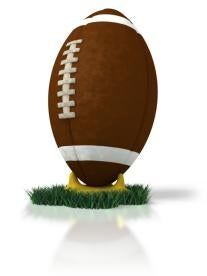If you enjoy employment law AND sports, you may be enjoying this summer more than any other; and if you are also an aficionado of employee classification issues then I KNOW you are enjoying this summer more than any other.
Typically, the headlines in the sports world during the summer months are dominated by free agent[1] movement from in the National Football League (NFL) and the National Basketball Association (NBA). This summer generally was no different as the attention of the sports world the last few weeks has been dominated by the NBA, whose players have been signing some of the richest contracts in NBA history thanks to their collective bargaining agreement’s revenue sharing provision and skyrocketing TV deals. Adding to the intrigue of NBA player movement this year was DeAndre Jordan’s now infamous flip flop leaving Dallas Mavericks owner and Shark Tank fixture Mark Cuban looking for a new big man to anchor his defense and possibly wondering whether Jordan breached an enforceable oral contract. Not to be outdone by the NBA, the NFL reminded us that it is the most popular league in sports when national attention turned to threats by the NFL Players Association to file collusion chargesa gainst two of the league’s more popular franchises, the Denver Broncos and Dallas Cowboys, for allegedly negotiating in bad faith with Demaryius Thomas and Dez Bryant.[2]
However, in an atypical twist, the focus shifted this week from the entertainers displaying athletic prowess on the field to the entertainers showcasing their talents on the sidelines. California Governor Jerry Brown signed Assembly Bill 202 (AB 202) into law this week, requiring California’s professional sports franchises to classify their cheerleaders as employees rather than independent contractors, and thereby requiring them to pay the cheerleaders minimum wage and provide them with other minimum protections under the law afforded to other employees. The bill was introduced by Assemblywoman Lorena Gonzalez of San Diego, who explained the bill marks “an important step toward ensuring that multibillion dollar sports teams treat cheerleaders with the same dignity and respect as every other employee who makes the game-day experience special.”
The plight of the NFL cheerleader first drew national attention in January 2014, when a group of cheerleaders “independently contracting” with the Oakland Raiders football franchise brought a class action lawsuit against the team. The Raiderettes alleged the team contracted to pay each cheerleader a flat fee of $125.00 per home game regardless of the number of hours spent preparing for the game or performing during the game. The Raiderettes estimated that they were paid an amount less than $5.00 per hour taking into account practice, rehearsals, game day performances, and appearances at other events. The California minimum wage in 2014 was $8.00 per hour, well above the estimated amount of hourly compensation the Raiderettes received.[3] The Raiders and the class of Raiderettes who brought the lawsuit settled earlier this year for $1.25 million. The Raiders are not the only NFL franchise to have recently been sued by cheerleaders claiming employment violations. AB 202 may be a sign of things to come, particularly since the NFL is known for its ability to adapt to the progress of the times.
Significantly, this bill joins the recent legal wave of momentum regarding worker classification. The California Labor Commissioner started the summer off by siding with Uber employees – and perhaps other ride share providers – regarding their misclassification claim. The Department of Labor (DOL) then raised the ante by unveiling proposed rules expected to result in approximately 4.6 million (or more) currently exempt workers changing classification to non-exempt workers. Earlier this week, we heard again from the DOL, this time through an Administrator’s Interpretation declaring “most workers are employees under the [Fair labor Standards Act].” The DOL’s proposed rule changes are subject to a 60-day comment period and any final regulations must take comments into account.
[1] Free agents are players whose contracts have expired and are free to sign with the team of their choosing in accordance with the league’s collective bargaining rules.
[2] The controversy subsided substantially the day after NFLPA’s threats as both Bryant and Thomas signed nearly identical five-year contracts with their respective teams worth approximately $70million each. Collusion? What, collusion?
[3] This reflects the California minimum wage at the time the lawsuit was filed. The California minimum wage went up to $9.00/hour on July 1, 2014 and is scheduled for another increase to $10.00 per hour effective January 1, 2016.



 i
i


